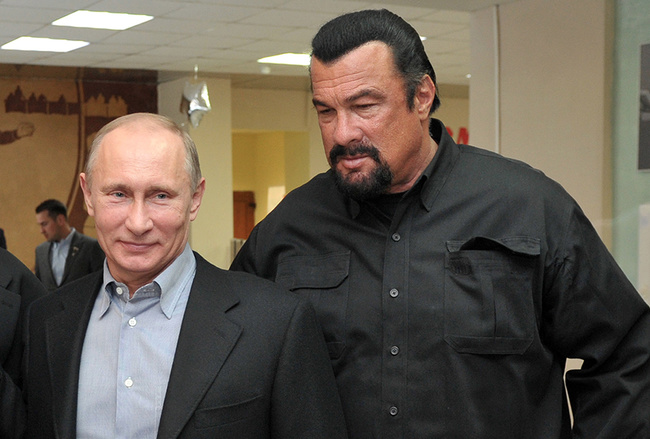“Thuggish kleptocracy upheld by state-sponsored murder” is probably the way I’d describe Russia under Vladimir Putin, a capo with nuclear capabilities whose odious criminal record will only grow in retrospect, when the much-needed autopsy is finally performed. If Nixon had a “credibility gap,” Putin has an incredible, gaping one. No one knows precisely where all the bodies are buried, only that there’s death in the air, mixed with the scent of oil pulled from yesterday’s wells.
In a New York Review of Books piece, Masha Gessen tries to make sense of it all, wondering if the term “mafia state” is the most apt description. The opening:
Is Russia a fascist state? A totalitarian one? A dictatorship? A cult of personality? A system? An autocracy? An ideocracy? A kleptocracy? For two days last week, some of the best Russian minds (and a few non-Russians) met in Vilnius, the capital of Lithuania, to debate the nature of the Putin regime and what it may turn into when Putin is no longer in power, whenever and however that may come to pass. The gathering was convened by chess champion and politician Garry Kasparov, who, like the overwhelming majority of the roughly four hundred participants, is living in exile. People came from the United States, Great Britain, Germany, Malta, and the Baltic states, but Vilnius was chosen for its geographic and symbolic proximity to Russia.
“Part half-decayed empire on ice and part gas station,” a description offered by political scientist Lilia Shevtsova, was probably the most colorful, but the current fashion among the Russian intellectual class is to call Russia a “hybrid regime,” one that combines elements of dictatorship and democracy. Unlike just about all other available definitions of Putinism, this one contains a kernel of hope: it suggests that the regime’s tiny democratic elements can be strengthened and used to weaken the dictatorship part.•

